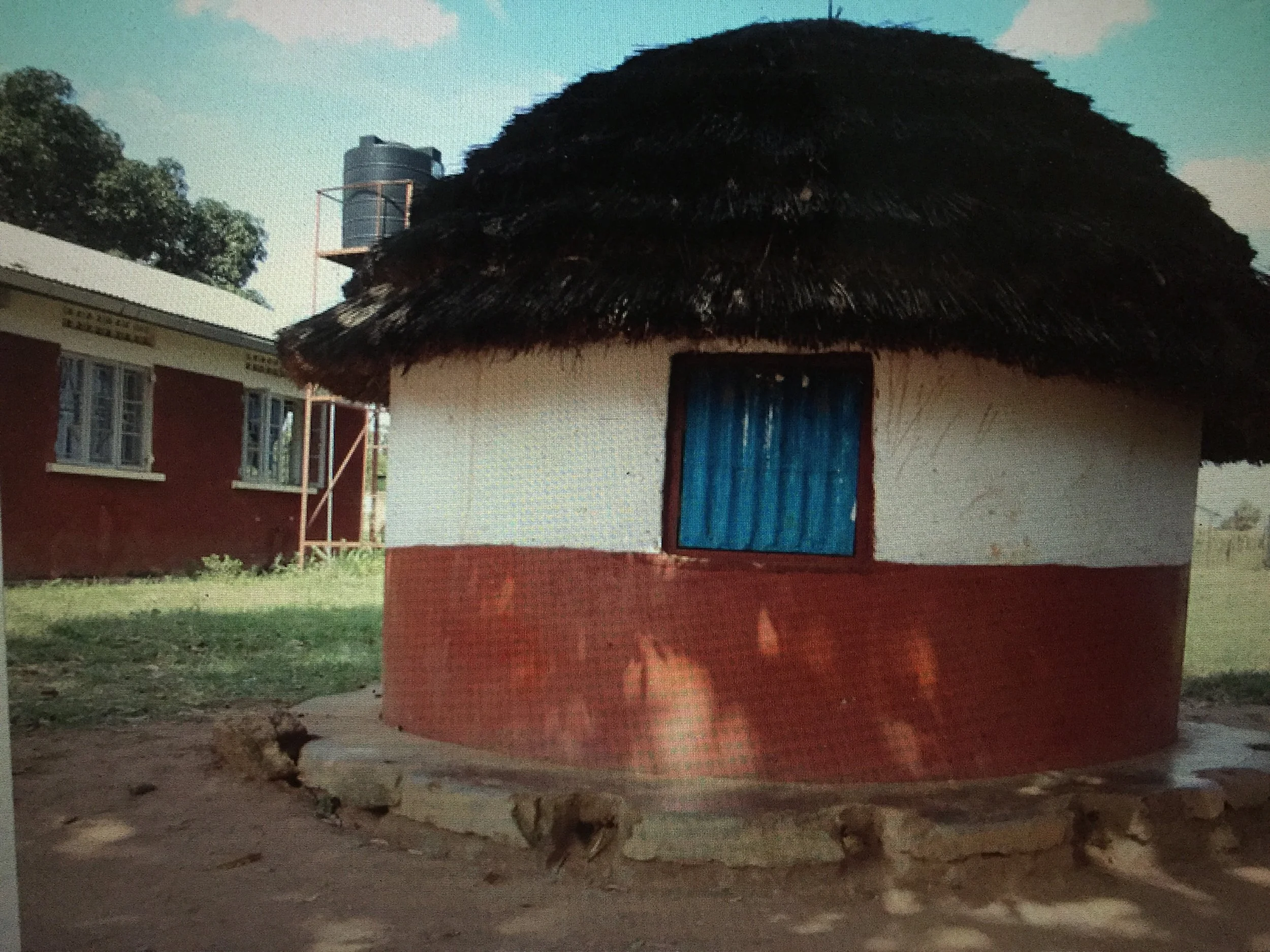
Research
Scientific Publications
Dr. Snyder’s peer-reviewed research spans trauma, mental health access, displacement,
measurement adaptation, capacity building, and the intersections of law, community, and care.
Publications include:
Preparing Clinicians to Conduct Forensic Medical and Mental Health Evaluations for People Seeking Asylum (PRiMER, 2025)
Describes a novel, experiential training model for residents
and fellows conducting asylum evaluations.
Read Article ›
Neurological Care of Refugees and Other Forcibly Displaced Persons
(Seminars in Neurology, 2024)
Reviews the unique neurological and psychiatric care
needs of displaced populations.
Read Article ›
Order Keepers or Immigration Agents? Latine Immigrant Views of Law Enforcement in Healthcare Settings
(Journal of General Internal Medicine, 2024)
Examines how immigrant communities perceive law enforcement presence in healthcare.
Read Article ›
Depressive Symptoms, Sexual Activity, and Substance Use Among Adolescents in Kampala, Uganda
(African Health Sciences, 2019)
Investigates links between adolescent mental health
and risk behaviors in Uganda.
Read Article ›
The Eric Garner Case: New York Voters’ Response to Police Accountability Legislation
(Journal of Social Service Research, 2016)
Analyzes public opinion on police accountability
following Eric Garner’s death.
Read Article ›
Regulation of Positive and Negative Emotion: Effects of Sociocultural Context
(Frontiers in Psychology, 2013)
Investigates how cultural context shapes
emotion regulation strategies.
Read Article ›

Other Peer-Reviewed Contributions
In addition to journal articles, Dr. Snyder has co-authored several peer-reviewed training modules as part of the Asylum Medicine Training Initiative. These open-access resources are designed to support clinicians and evaluators working with people seeking asylum (free CE credits available for providers):
✓️ Vicarious Trauma and Vicarious Resilience in Forensic Evaluators
A module exploring how evaluators can manage the emotional impact of their work while fostering resilience.
View Module ›
✓️ Sexual and Gender-Based Violence (SGBV)
A training on recognizing, documenting, and responding to SGBV in asylum medicine.
View Module ›
✓️ Introduction to the Forensic Mental Health Evaluation
Guidance on conducting effective and ethical evaluations for asylum seekers.
View Module ›
Professional Reports & Educational Materials
Alongside peer-reviewed publications, Dr. Snyder contributes to applied reports and educational resources that bridge research, practice, and policy:
Spotlight on Asylum: Health Equity and Care for Asylum Seekers in Massachusetts (2023) .
Co-authored report highlighting gaps and opportunities to improve healthcare access for asylum seekers in Massachusetts.
Read Report ›
Current Projects
Asylum Medicine: Building Access, Training, and Research
Dr. Snyder serves as Director of Research and Development for the Cambridge Health Alliance Asylum Program (CHAAP) | Harvard Medical School, home to the first asylum medicine residency elective in the United States. In this role, she helps oversee CHAAP, evaluate program effectiveness, and expand training opportunities for healthcare workers conducting forensic medical evaluations for asylum seekers (see pilot study ›). She also mentors psychiatry and psychology residents in the CHA Asylum Medicine Elective.
Dr. Snyder acts as a liaison between the CHAAP and the Leah Zallman Center for Immigrant Health Research, helping to expand partnerships and ensure asylum medicine is integrated into broader health equity efforts.
Nationally, Dr. Snyder contributes as faculty for the Asylum Medicine Training Initiative, where she co-led three of the eleven modules that prepare clinicians, human rights professionals, and legal experts to conduct forensic medical evaluations based on the updated Istanbul Protocol 2022:
✓️ Vicarious Trauma and Vicarious Resilience in Forensic Evaluators
✓️ Sexual and Gender-Based Violence (SGBV)
✓️ Introduction to the Forensic Mental Health Evaluation
Through these roles, Dr. Snyder advances asylum medicine as a field, expands access to forensic medical evaluations, and trains the next generation of providers to facilitate equitable, trauma-informed care for people seeking protection.
Supporting Those Who Care for Trauma-Exposed Communities
Alongside her colleagues Dr. Jenny Wen and Dr. Rahel Bossom, Dr. Snyder is leading a project to support healthcare workers, humanitarians, and others who work closely with trauma-exposed populations. These professionals often face secondary traumatic stress (STS), emotional and physical exhaustion that can come from repeated exposure to others’ traumatic experiences. At the same time, they may also experience secondary traumatic growth (STG), finding resilience, meaning, and a renewed sense of purpose through their work.
This project explores both sides of that reality and seeks to:
✓️ Understand how STS and STG impact clinicians, interpreters, case workers, and humanitarians—especially those who are themselves immigrants, refugees, or people of color.
✓️ Develop a workshop series that builds resilience and promotes growth while reducing burnout.
✓️ Create a peer-support model where providers can share experiences, foster connection, and engage in collective healing.
By centering the lived experiences of those who do this work, the project aims to reduce burnout, strengthen the workforce, and promote sustainable, community-led care for people affected by displacement, violence, and systemic oppression.
If you are interested in a workshop for your organization or in funding this work, please contact Dr. Snyder at drsnyder@transitpsych.com
Prior Global Mental Health Fieldwork
Rwanda, Tanzania, Uganda
Dr. Snyder developed, led, and funded a multi-country partnership to pilot advanced psychological assessment methods across the East African Community. The project trained more than 60 local mental health providers, with a subset certified to proficiency in administration and coding, and partnered with universities to ensure sustained capacity. A community sample of 300+ participants completed structured assessments alongside validated international self-report measures for depression, anxiety, trauma, suicidality, and socioeconomic factors. Findings underscored the need for population-sensitive assessment norms that reflect local idioms of distress and well-being, moving beyond Western-centric standards. The project also provided financial support for over 100 community members and created research and publication opportunities for local staff.
New York State, USA
Led a state-wide survey of New York voters following the death of Eric Garner to examine public support for proposed police accountability legislation. Findings showed broad concern about police practices and meaningful support for reforms; responses varied across demographic groups. The study highlights how public opinion can shape policy debates around policing, race, and justice.
Global, UNICEF (remote)
Conducted a global review of programs linking early childhood development with violence prevention (“ECD+”). Using literature searches, UNICEF country reports, and key-informant interviews, we built a database and interactive maps showing where programs exist, how they are funded and evaluated, and what strategies work best. The project highlighted innovative efforts worldwide and provided practical insights to strengthen child protection in the early years.
Kitgum, Uganda
Conducted a formative evaluation of a 36-month program in northern Uganda designed to support former male child soldiers from the Lord’s Resistance Army. The program combined mental health services (group and individual therapy, community support groups) with livelihoods training (business skills, mentorship, savings clubs) to improve quality of life and social reintegration. Using interviews, focus groups, community consultations, and standardized assessment tools, we found that participants valued the program but highlighted the need for adaptations, particularly around fairness in resource distribution. Findings also revealed high rates of trauma symptoms, substance use, and externalizing behaviors, underscoring the importance of integrated psychosocial and economic support.
Za’atari Refugee Camp, Jordan
Assisted with a randomized controlled trial comparing International Medical Corps (IMC) and World Health Organization (WHO) psychosocial case management models for displaced refugees in Jordan, including work in Za’atari Refugee Camp and surrounding urban areas. Responsibilities included measure development and validation, training of trainers, site visits, and technical reporting. A companion psychometric report evaluated the reliability and validity of instruments used in refugee mental health research, recommending culturally adapted tools for screening, outcomes measurement, and service evaluation. Findings informed evidence-based improvements in humanitarian mental health care and capacity building for field staff.
Arab League (remote)
This study examined the urgent need for mental health research, training, and advocacy for women across the 22 countries of the Arab League. By comparing access to open access (public) vs. university databases (paid), we found that free searches yielded far fewer mental health publications, limiting access to evidence that could guide change. A review of existing literature and WHO data showed that women face high barriers to care, rooted in stigma, gender inequality, and cultural norms that deprioritize their needs. Depression, anxiety, and suicide remain major but under-recognized concerns, with men receiving care at disproportionately higher rates. Drawing on media reports from the United Arab Emirates, the paper proposed a mental health capacity-building plan for women in Abu Dhabi and concluded with a call for urgent action in research, education, training, and policy across the region.
Kizibia Refugee Camp, Rwanda
Co-developed a participatory monitoring and evaluation plan of a project designed to strengthen literacy, numeracy, and vocational skills of women in Kizibia Refugee Camp (Rwanda). The program uses a capacity-building model: women are first trained in reading, numeracy, and teaching skills, then supports them becoming trainers themselves. This “train-the-trainer” approach not only improves mothers’ ability to support their children’s education but also fosters broader community participation and socioeconomic development.











